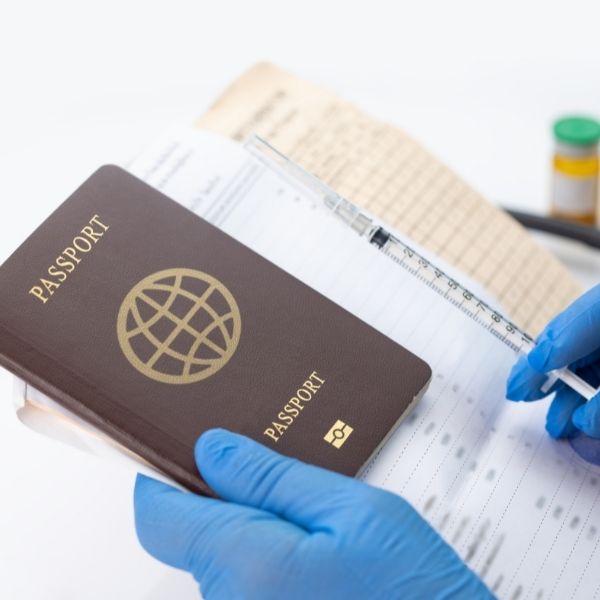
General Travel Vaccination Advice for Ireland
The decision to go to Ireland is your decision and you are accountable for getting all the vaccination you are required to have prior to your trip to Ireland.
The content on this web page is offered information only and compiled from travel advice and warnings for Ireland by governments around the world to their citizens.
While we make every effort to give you latest travel advice information, it is provided on an “as is” basis without warranty of any kind, expressed or implied.
This owners of this website does not assume responsibility and will not be liable for any damages in connection to the information provided.
General Vaccination Needed for Ireland
Do I require to vaccination when taking a trip to Ireland? Any individual wanting to go on holiday or business trip to Ireland need to get in touch with a healthcare expert or go to a travel health clinic preferably 6 weeks before you travel regarding the folloing:
Regular Vaccines – Make certain that your routine vaccines such as inoculation for measles-mumps-rubella (MMR), diphtheria, tetanus, pertussis, polio, varicella (chickenpox), flu and others are up-to-date despite your travel to Ireland.
Additionally, you may be at risk for these vaccine-preventable diseases when taking a trip in Ireland. Speak with your travel health specialist about which of these injections are right for you:
- Covid 19 is a transmittable viral disease. It can spread from one person to another by direct contact as well as through droplets airborne.
- Hepatitis B A disease of the liver spread via blood or other bodily fluids. Travellers who might be exposed (e.g., through sexual contact, clinical therapy, sharing needles, tattooing, acupuncture or job-related exposure) ought to obtain vaccinated.
- Influenza (Flu) Seasonal influenza occurs worldwide is brought on by a virus spread from person to person when they cough or sneeze or by touching objects and surface areas that have been infected with the virus.
- Measles is a highly contagious viral disease. It can spread swiftly from person to person by direct contact and also through droplets in the air.
- Tick-borne encephalitis exists in some areas of Ireland and it is a viral disease that affects the central nervous system (brain as well as spinal cord). It is spread to humans by the bite of infected ticks or when you take in unpasteurized milk products.
Is it safer to take a trip to a location with animals in Ireland?
Travellers to Ireland are usually warned to stay away from contact with animals, including pet dogs, monkeys, snakes, rodents, birds, and also bats. Some infections located in some areas of Ireland, like avian influenza and rabies, can be shared among human beings as well as animals.
Whilst travelling Ireland, is it safer to drink water in Ireland?
Tourists to any location on the planet including Ireland can get travellers’ diarrhea from consuming contaminated water or food.
As food and water can become carries of diseases such as cholera, hepatitis A, schistosomiasis and typhoid, always practice safe food and water precautions while taking a trip in any part of the globe. Keep in mind: Boil it, cook it, peel it, or leave it!
Travel insurance coverage for Ireland
Health cover is just one of the main reasons travellers obtain travel insurance. It will not avoid you getting ill or injured, though it can prevent you suffering financially. Medical aid overseas can be really expensive.
You have to pay for all treatment you obtain overseas. You can’t expect to get free or subsidised treatment through your Ireland’s public health system, like you would in your home country.
If you can not pay, local authorities could detain you. The government from your home country can’t pay you medical costs for you, loan you cash or get you out of jail.
You require travel insurance policy for travelling to Ireland. You also need to make sure you choose a plan that is right for you.
Read the small print of your travel insurance policy.
Declare all pre-existing conditions to your travel insurance company upfront. If you do not, you might invalidate your travel insurance policy.
Tell your travel insurance provider the activities you plan to do, prior to you go. Many popular activities like skiing are omitted in standard plans. You may require to pay additional.
Check if you have free credit card travel insurance coverage. Some cards include travel insurance policy cover. Nonetheless, they frequently have different conditions than paid plans. Be aware of the differences.
If you’re going to Ireland from a country that has a reciprocatory health care agreement, you still require travel health insurance. Agreements are limited in what they’ll will cover.
If you have a terminal disease, you may not have the ability to get basic travel insurance policy. Nonetheless you might be able to find a specialised insurer that covers you for health, accidents or property problems unrelated to your health problem. Talk to your insurance firm to learn.
Learn more about obtaining global travel insurance policy for Ireland before you go.
